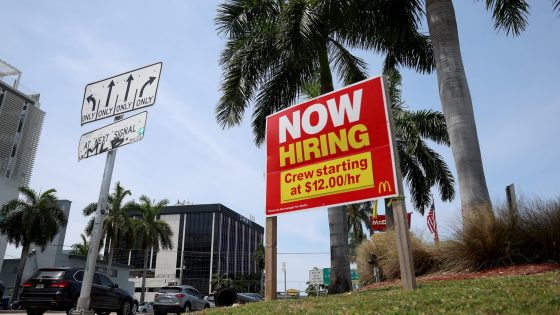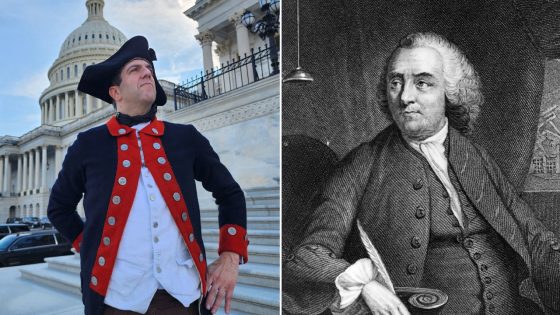(Bloomberg) — Kamala Harris’s promise to take action on housing costs addresses a burden depressing enthusiasm for the presidential campaign among core Democratic constituencies such as the young, racial minorities and lower-income voters.
Most Read from Bloomberg
The surge in rents and mortgage interest rates since the pandemic has fueled tremendous financial disparities, driving up costs for renters, would-be buyers and new homebuyers, three groups who disproportionately are among key Democratic-leaning groups Harris needs to excite to win in November.
Harris targeted those hardships in her economic policy rollout Friday, calling for a $40 billion innovation fund to build housing units, a $25,000 tax credit for first-time homebuyers, and supporting legislation to discourage “corporate landlords” from buying up homes in bulk and inflating rents.
“By the end of my first term, we will end America’s housing shortage by building 3 million new homes and rentals that are affordable for the middle class,” Harris said in a speech in swing state North Carolina.
Housing affordability is a top voting issue for both Generation Z and Millennials. For the two youngest cohorts of voters, it ranked only behind overall inflation among the most important concerns in the presidential election for the Bloomberg News/Morning Consult swing-state poll in late July.
The sense that owning a home is becoming unattainable is especially fraught because that life step is so closely tied to notions of the American dream, building wealth and starting a family. It has become an increasingly pressing concern as housing costs skyrocketed and inflation ate away at disposable income.
That exacerbated the divide with long-time owners, who are more often older and benefited from a boom in home equity values while paying lower monthly payments they secured when mortgage rates were much lower.

Even before Harris made her most recent proposals on housing costs, swing-state voters had more confidence in her than Joe Biden to address the problem. She led Donald Trump on the issue by a statistically insignificant 1 percentage point while in early July Biden trailed the Republican by 6 points, according to the poll.
Tom Diehn, 33, an industrial maintenance supervisor for an organic foods company, has been unable to move out of the 800-square-foot house in suburban Milwaukee he rents though he is eager to reduce his commute time. The rents on any suitable alternatives are “exorbitant,” he says.
He sees in Biden and Trump, both Baby Boomers, the products of an earlier generation that took for granted they could easily buy a house on one salary. In Harris and Democratic vice presidential candidate Tim Walz, who are 59 and 60, respectively, he sees younger leaders who have a better feel for the struggles of Americans stuck in a grim rental market.
“They have just at least an opportunity to learn about it a little bit better,” said Diehn, an independent who said he voted for Trump in 2016 and Biden in 2020 but wasn’t enthusiastic about either man this year.
With Harris and Walz on the ticket, “I’m a little bit more enthusiastic,” he said.
But support for Democrats among renters has eroded as the US median asking rent jumped 47% since 2019 as of the second quarter, according to the Census Bureau. Affordability is the worst on record with half of all renters considered cost-burdened because they spend more than 30% of their income on housing and utilities, according to Harvard University’s Joint Center for Housing Studies.
At the same time, home prices are soaring. The median existing-home sales price reached a record $426,900 in June, according to the National Association of Realtors.
Milwaukee, the largest city in the key swing state of Wisconsin, is the most rent-burdened city in the Midwest, with the highest share of income going to housing, Realtor.com found.
Megan Montgomery, a 39 year-old customer success manager from Milwaukee, is the type of voter Democrats are trying to reach. She had planned to move out of her apartment when the rent was increased by $280 a month last year but couldn’t find anything suitable she could afford.
“I have to rent because I can’t buy a house,” Montgomery said. Anything affordable in a safe neighborhood is “so battered and broken that it’s not worth it to try to salvage.”
Montgomery, a Democrat who voted for Biden in 2020, likes Harris more than Biden but said she worries the vice president won’t have an impact on housing costs.
Support for the Democratic ticket among renters is well short of the overwhelming margin Biden received in 2020. They voted 67% to 30% Democratic in the last presidential election, according to an Apartment List analysis of American National Election Studies data.
Harris led Trump among renters by a less decisive 55% to 38% in the Bloomberg monthly tracking poll of the seven key swing states conducted July 24-28. Almost half of renters said housing costs would be one of the three most important factors in their vote, compared with 21% of homeowners.
Renters are typically harder to motivate to vote. In the last presidential election, turnout among renters lagged homeowners by 16 percentage points and by 18 percentage points in the 2016 election, according to the Census Bureau.
Trump has focused on threats he says liberal policies to promote construction of more affordable housing pose to suburbs. His messaging on housing doesn’t really have anything to do with affordability but more with preserving neighborhoods as they are, said Daryl Fairweather, Redfin’s chief economist.
Trump campaign press secretary Karoline Leavitt said in a statement that “the Biden-Harris agenda has made the American Dream of homeownership unreachable for families across the country” and that “thankfully, President Trump has promised to cut spending, lower taxes, and drive down costs.”
Democratic activists and pollsters say Harris has a chance to rev up a key part of Democrats’ 2020 coalition by emphasizing the Biden administration’s efforts to lower costs.
“Rent is the key economic issue of our time,” said Tara Raghuveer, director of the Tenant Union Federation.
Most Read from Bloomberg Businessweek
©2024 Bloomberg L.P.
Source Agencies


